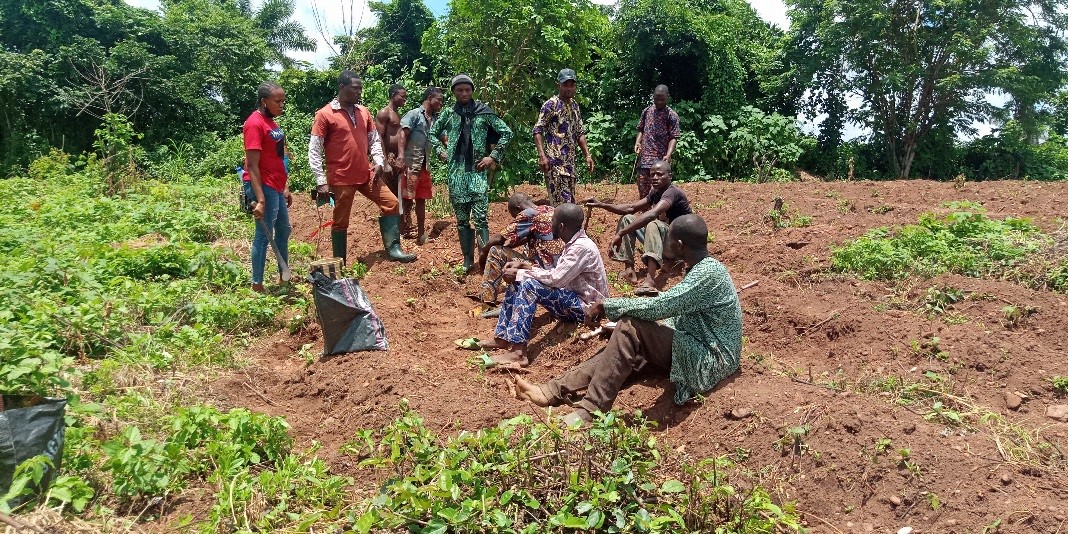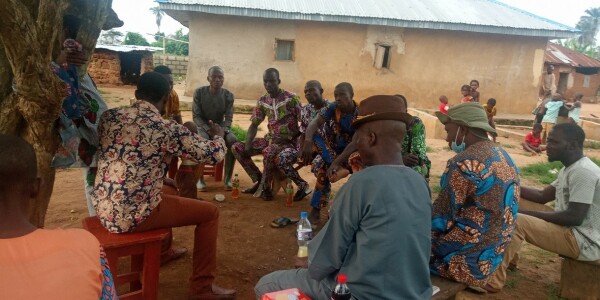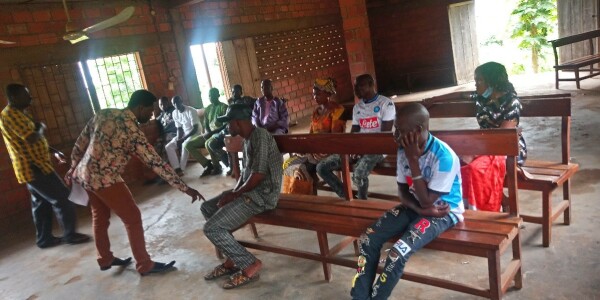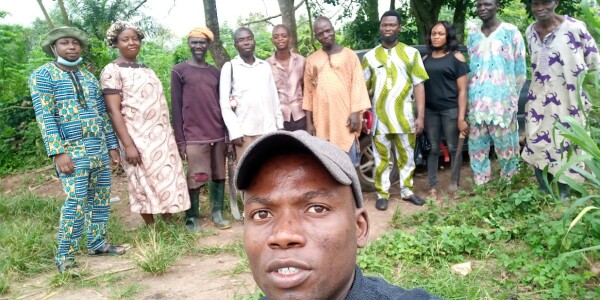Testing approaches and building capacity for fall armyworm control in Nigeria

Sarah Luke and Edgar Turner, University of Cambridge/University of Nottingham, UK, and Mobolade D. Akinbuluma, Department of Crop Protection and Environmental Biology, University of Ibadan, Nigeria
Our project focussed on identifying habitat management options for controlling fall armyworm outbreaks in Nigeria, as well as exchanging ideas and options for alternative management practices between a network of maize farmers and researchers involved in this project. The fall armyworm is invasive in sub-Saharan Africa, and has become a major pest of maize crops in the region, causing substantial yield losses. Currently, chemical insecticides are the usual form of control, but these can have widespread negative impacts on the environment.
Working with a network of 19 local farmers, recruited with the help of the Oyo State Agricultural Development Program (Figures 1 & 2), we assessed the effect of intercropping maize with cowpea (another common crop in the region), applying mulch, and changing tillage regimes, as well as the influence of varying levels of tree cover, on armyworm numbers (Figure 3), damage to the crop, and maize yield.

Figure 1: The team addressing the farmers at Elekuru/Alabata area

Figure 2: The team explaining the protocols to participating farmers
Figure 3: The research team carrying out pitfall trapping of insects
A key part of the project was working with farmers to vary their management practices (Figure 4). Field data collection was carried out collaboratively with local farmers and coordinated by two masters-level Ibadan-based research assistants, who were employed as a key part of this project.

Figure 4: The research team with farmers at Ajibode/Sasa after one of the regular meetings
We found that damage by armyworms tended to be lower in fields with intercropping. Areas of farmland with higher tree cover also had taller maize plants, longer and heavier maize cobs, and heavier cowpea pods. Our results are a first step in identifying alternative options for controlling fall armyworm, and could help to limit the use of pesticides to control this important pest species.
We have already run a workshop, based at the University of Ibadan, to share results of the study with local farmers and the University research community. Knowledge exchange and capacity building were a key part of the project. For example, the two Ibadan research assistants received training in fieldwork, lab techniques, and data management approaches as part of the project, and there was widespread exchange of ideas between the research team and collaborating farmers throughout the project. Finally, Cambridge were lucky to host Dr Mobolade for a three-week visit, where project results were analysed and Dr Mobolade was able to share his research with members of the Insect Ecology Group. We are currently working on writing up results of the project for publication.


